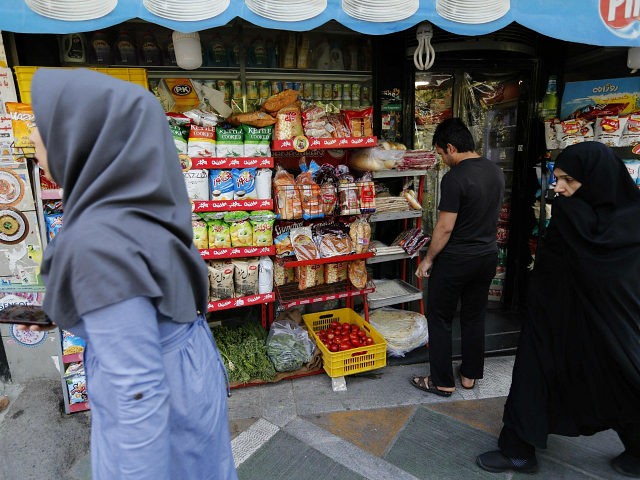Iran May Start Rationing Food to Insulate Effect o
Post# of 52108
< >

Iranian lawmakers are urging the country’s regime to consider rationing food and using food coupons as the pressure of U.S. sanctions begin to take their toll, Radio Farda reported this week.
On Tuesday, the parliament approved a bill calling on the regime to begin importing food items such as meat, rice, sugar, bread, and other essential commodities and start selling them at subsidized prices at cooperatives and state-owned shops that would allow more people to access and afford them.
The bill asks the regime “to organize a network for the distribution of essential commodities via cooperatives, state-owned shops, as well as labor organizations and work-places in order to distribute families’ requirements at a subsidized rate.”
Rationing coupons were last used in the 1980s during the war with neighboring Iraq when the country experienced a chronic shortage of resources. However, Iran is now experiencing another major economic crisis as President Donald Trump reimposed economic sanctions after annulling the Iran nuclear deal signed under Barack Obama.
Since January, the Iranian rial has lost 80 percent of its value against the dollar, while the prices of food and other basic goods continue to rise. Over 40 percent of Iranians are also unemployed. The situation has caused considerable anger among Iranians and anti-government demonstrations have now become a common occurrence. Last month, it was reported that nearly half a million Afghan migrants have left Iran because of its weakened economy, with many of them unable to find worthwhile employment due to high rates of inflation.
It is not the first time that Iranian lawmakers and economists have proposed the introduction of rationing amid the ongoing crisis, although President Rouhani has opposed the measure for fear of its “psychological impact.” Before his resignation in August, former Labor Minister Ali Rabiei suggested “controlling food prices, providing food and medicine for the underprivileged strata of the society, and supporting small businesses” as a way of helping the wider population.
On November 4, the United States will impose a number of additional sanctions against countries that continue to import Iranian oil, which is only likely to worsen the crisis. As such, Iranian politicians blame their woes as a consequence of an “economic war” led by America, although many citizens instead blame the country’s theocratic leadership under Supreme Leader Ali Khamenei and are demanding regime change.
 (0)
(0) (0)
(0)